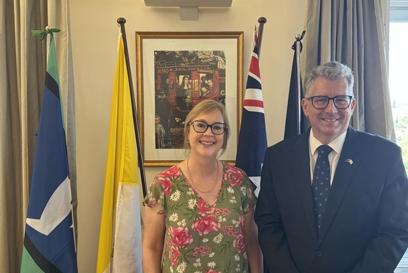The Archbishop of Dhaka, Bangladesh’s bustling capital city, Cardinal Patrick D’Rozario, recently visited Sydney, calling on the international community to take action and not mere words, in support of Rohingya who have escaped Myanmar for Bangladesh.
His Eminence spoke not just of the essential emergency efforts which the Caritas network has undertaken, which includes food kits, emergency supplies and construction equipment, but the great hardship and indignity which has come to define the Rohingya experience.
According to the UN the spate of ethnic tension, which began in Myanmar in 2015, and culminated in 2017, has driven almost one million people, most of whom identify as Rohingya, to cross into Bangladesh to flee violence in Myanmar’s Rakhine State. Many like Barsha, a father of five, have been traumatised, after escaping with little more than the clothes on their back and witnessing extreme violence including; abductions, rapes, and murders.
Since September 2017 Barsha found help including food and shelter in Caritas-supported emergency programs at a camp on the Cox Peninsula. So far, the Caritas international network, led by Caritas Bangladesh has helped over 120,000 individuals, including over 15,000 families. Caritas has also established child-friendly spaces in the camps, where children can draw and learn lessons in their native tongue.
But according to Cardinal D’Rozario, who’s visited the Cox Peninsula four times, said with plans to move the Rohingya to an island prone to natural disasters, he remains concerned at the lack of international action on the issue, leaving the Bangladeshi government with no real choice.
“I really see the difference in the way they are taking care and especially the role of Caritas Internationalis, including Caritas Australia and the way they have contributed to take care of the humanitarian needs of the people, but when I went there for the first time, I really felt the cries of these poor Rohingya and I felt these were the cries of humanity,” Cardinal D’Rozario said.
“I thought to myself ‘why are all these poor people having to suffer like that? Why do they have no address, why have they been kept in one area without providing education?”
“The thing is they cannot live on the way they are living, without education, without formation, the government is not allowing it, because that would keep the permanency. But in Bangladesh we are such a densely populated country, and the whole area has doubled in population. This has created so many environmental, social problems.
“But what will Bangladesh do with all these people, if the international community do not come forward to find solutions? We already see the frustration and conflict coming with the local people on this issue.”
The Cardinal, who operates in a Muslim majority country, accompanied Pope Francis during his visit to Bangladesh where he met with interfaith communities and 60 Rohingya, calling for “action not words.”
To donate, visit Caritas Australia’s Asia Emergency Appeal page or call 1800 024 413.

















